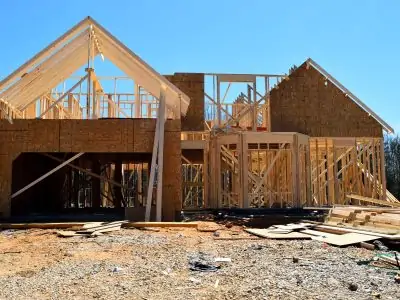If you’re a business owner or a property owner, it’s crucial that you make sure your property is fully up to standard. Ensuring compliance with industry standards in your commercial building is not just a matter of legal responsibility, but also a strategic decision that can affect the operation and efficiency of your assets. Compliance can play a crucial role in safety management, operational effectiveness, and long-term financial planning. In this article, we will delve into three critical areas in your commercial building that require strict adherence to current regulations: elevators, utilities, and roofing.
Elevators
Elevators in commercial buildings represent a vital aspect of accessibility and operational practicality. Regular maintenance and compliance checks ensure safety and efficiency, which can prevent unexpected breakdowns and costly repairs, benefiting your budget in the long run. In light of regulatory standards, businesses must keep abreast of the latest developments to provide a seamless experience for their users.
Adopting sustainable technologies in elevator systems can significantly lower energy consumption, making operations more cost-effective. Recent trends suggest integrating smart technologies, which allow real-time monitoring and predictive maintenance. These advancements not only streamline operations but also contribute to meeting increasing environmental standards.
With forecasts estimating the elevator market to reach almost $84 billion by 2032, staying ahead in compliance means being proactive about technological upgrades. Ensuring that your elevators meet or exceed safety codes helps to protect your business from liability risks. By investing in compliance, you are also investing in long-term operational savings and building value.
Utilities
Utility compliance, particularly energy efficiency, is becoming a significant focus in commercial building management. New directives require improvements in air conditioning and heating systems, which will influence both environmental impact and cost efficiency. Investing in compliant utility systems can yield savings and optimize your building’s monthly budget.
Modernizing your HVAC systems to align with current efficiency standards is not just a regulatory mandate but also a means to enhance occupant comfort. Integrating newer technologies can help in reducing energy wastage and greenhouse gas emissions. Such transformations are crucial to achieving your organization’s sustainability objectives.
Compliance with utility standards can also provide a competitive edge and improve your building’s marketability. Potential clients or tenants are increasingly inclined towards energy-efficient buildings. Conforming to new systems ensures that your commercial property remains attractive to these eco-conscious prospects.
Roofing
The integrity and compliance of a building’s roofing system are vital for safety, durability, and energy efficiency. Regular inspections and adherence to current standards can prevent expensive damage and maintain property value. Utilizing compliant materials in your roofing can lead to considerable cost savings over time, aligning well with strategic budget planning.
Innovations in roofing materials are providing more energy-efficient solutions, contributing to the sustainability of commercial buildings. Current standards encourage the use of reflective materials that reduce cooling costs and minimize carbon footprints. Businesses are increasingly expected to incorporate these materials to meet regulatory demands.
With over 252,000 roofing contractors working in the industry, staying compliant is now more accessible than ever. Regular interaction with qualified professionals ensures your roofing system meets all necessary requirements. Ultimately, proper roofing adherence translates into safeguarding both the building and its occupants.
Staying compliant in these key areas of your commercial building—elevators, utilities, and roofing—not only fulfills legal obligations but also contributes to operational efficiency and cost-effectiveness. By adopting a proactive approach to compliance, businesses can protect their assets, optimize operations, and make informed decisions that align with their overall budget strategy. In a landscape where regulations are continually evolving, ensuring adherence is fundamental to sustaining and enhancing the value of your property.






